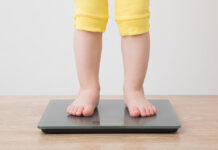This post is also available in: English हिन्दी (Hindi) বাংলা (Bengali)
Motherhood. Is there anything more rewarding than it? Your little bundle of joy is so completely, so utterly dependent on you – trust in its most absolute form. Of course, if there is probably one downside of motherhood, it is all those pounds you’ve probably put on. And while faddish diets might seem a tempting option (whoever thought diets could be described as tempting?), please desist from doing so. Especially if you have chosen to breastfeed your baby (and we sincerely hope you have).
Breastfeeding is strenuous work and there’s nothing more demanding than a baby who is hungry. Your little one’s every cry is a clarion call for milk. You will need to be healthy and full of energy to be able to give your child his or her feed. Which is why you need to eat well and eat right.
Here are 8 dietary tips that every nursing mother should lap up.
1. Drink to stay in the pink.
Dehydration is common in the first few weeks of feeding your baby. This may cause fatigue and sleepiness, making the journey of motherhood a tad more challenging. Hence, it’s very important to keep a big jug of water beside your bed or a bottle of water in your car, stroller or in your diaper bag – always. Guzzle down as much water as you can.
Plus, if you’re nursing you may get thirsty more often than not, so drink about 8 to 10 glasses of water every day.
Of course even when you do get thirsty, avoid drinks with high caffeine or sugar content at all costs, as these beverages tend to give you a caffeine kick or sugar rush at first but once that initial reaction is gone, you will feel even more exhausted. So steer clear of meeting your relatives and friends at cafes; arrange to meet them at the mall or promenade with your pram in tow instead. Yes, your little baby loves fresh air as much as you do!
PS. Although consuming other unsweetened, non-caffeinated beverages every day is okay, just ensure that your caffeine intake doesn’t exceed 300 milligrams per day!
2. Eat many meals (but mini meals).
Motherhood is a whole new way of life. Old habits have to make way for smarter ones. The three-big-meals-a-day routine won’t just cut it anymore. I mean, you are probably feeding your baby 5 to 9 times a day (and 9 to 5). Like your infant, you too will need to replenish yourself more often. After all breastfeeding is pretty hard work.
These short meals will give you an energy surge when you most need one. It’s also more beneficial in the long run and helps to lower cholesterol, promote weight loss (did you hear that baby fat? We’re coming to get you!) improve energy levels, boost metabolism, preserve lean muscle mass and promote weight loss (yes, we know we said it before but this is just in case the baby fat didn’t hear us the first time!).
Pediatrician James Sears, co-author of The Baby Book suggests, “Rather than eating three large meals, aim to eat five smaller meals throughout the day to keep your energy up.”
Just make sure you snack on healthy foods. This will make your feeding routine less exhausting while simultaneously improving the quality of your breast milk. And if hubby dearest can’t resist munching on your favourite chips or farsan during matches, tell him to hide it somewhere you can’t get your hands on. Although, good luck to him!
PS. If you are one of those fussy eaters who has trouble eating barely two meals a day (let alone several), then Dr. Sears suggests that you stock up your refrigerator with quick-yet-healthy snacks, such as dried fruits, low-fat yogurts mixed with fruits or toast with almond butter or even soybeans.
3. Skip if you want to. But not your breakfast.
High protein foods such as eggs, yogurt, whole grain bread as well as cereals are the best choices when it comes to breakfast. They contain complex carbohydrates that provide you with long-lasting energy throughout the day and hence they make for a better breakfast than simple carbohydrates.
Instead of going for a plain sweet donut or bread with butter or even a bowl of sugary cornflakes, try a smoothie made from yogurt and fruit, or a bowl of thick oatmeal or scrambled eggs with a brown bread toast.
4. Your baby doesn’t want you to diet.
In this age of social media, photos often crop up on various occasions where you see your family and friends looking extremely fit. This can make you overthink your weight gain and sometimes make you feel embarrassed and helpless. But right now all you got to keep in mind is that the weight gain is temporary. Once your little bundle of joy starts running around, you’re going to shed all those extra pounds. So, don’t be in a rush to lose weight by cutting down on calories or skipping meals.
“It’s important not to worry about your weight right now,” says Debra Gilbert Rosenberg, author of The New Mom’s Companion. She is a well-known psychotherapist and expert. She advises new moms to first concentrate on sustaining their strength and then moving on to losing weight. This weight loss can be gradual and slow. Give yourself about six months to a year in order to return to your pre-pregnancy weight. But even then, she advises new moms to resist the desire to crash diet or take up very stringent weight loss goals while they’re breastfeeding.
5. Reboot with fruit!
According to registered dietitian Jo Ann Hattner, fruit is the best bet when it comes to a quick snack. Fruit has natural sugar that gives you instant energy and doesn’t cause a “crash” later, like junk food loaded with refined sugar.
While just about every fruit is beneficial, blueberries are little pockets of antioxidants, pears and peaches are high in fibre, oranges and other citrus fruits contain Vitamin C and apples keep the doctor away (so does golf but that’s a whole different blog!). Fruit also keeps your alimentary canal in good health and keeps constipation at bay. Plus, a bowl of fruit requires zero preparation and no cleanup, making it the perfect snack to have on the go.
6. Go the whole hog on milk and low-fat dairy products.
Love cheese? Can’t compromise on your paneer parathas? Good news! You don’t have to anymore. If your favourite dishes include dairy products such as milk, yogurt, cheese, paneer (as long as they are made from low-fat milk) then you’re in for a treat.
A primary source of breast milk, these low-fat dairy products are the richest sources of Vitamin D, calcium, protein and B Vitamins, which give you and your baby strong bones and muscles. So, try to include at least three cups of low-fat dairy products in your diet each day!
7. Fish if you eat meat. Greens, if you don’t.
If you are a fan of salmon (the fish not the Khan) you are going to love the next bit. A nutritional powerhouse for nursing moms, salmon, like any other fatty fish, is full of a type of omega-3 fatty acid known as DHA. This fat is crucial to the development of your baby’s nervous system as well as uplifts your mood!
Although, high in nutrients, FDA recommends an average intake of 350 grams of fatty fish only. The reason is to limit your infant’s exposure to mercury which can adversely affect your baby’s nervous system. While the mercury levels in salmon, shrimp and canned light tuna are quite low, some other fish such as mackerel and swordfish have a very high amount of mercury, and should be avoided altogether. PS. If like us, you too love your sushi, go ahead and indulge. Sushi is very good for you.
Lest our veggie moms are feeling ignored, one of the best sources of Omega 3 grows in the garden not under the sea. Leafy green vegetables like spinach, broccoli, kale, etc. are also bursting with this must-have nutrient. So go ahead, rustle up some palak paneer, asparagus soup or a simple salad made of kale, almonds, apple, cheese and lemon juice. It’s all good!

8. And finally, always go with the flow.
If you have been searching for a genie who can *poof* appear from somewhere and hand over a magic potion, which will stimulate your breast milk flow then here she is: Nutritionist Sheryl Salis, a Senior Registered Clinical & Sports Nutritionist, Naturopath and a Certified Diabetes Educator. She says,
Galactogogues are substances that stimulate milk production or milk supply. The top 3 are:
- Shatavari: Also known as Asparagus Racemosus, this herb has been used traditionally used by lactating mothers for many centuries. It increases milk production and is trusted by many Asian mothers. Shatavari can be taken as a plant extract or in powder form.
- Fenugreek seeds: Commonly known as methi in Hindi, it is one of the most widely used herbal galactogogue. This herb increases breast milk production significantly.
- Garlic: Garlic has been traditionally used as a galactogogue. Studies have shown that babies fed on breast milk of mothers, who eat more garlic, didn’t cry for milk more often and the production of milk was relatively higher. It not only helps here, but also relieves the mother and the baby of gastrointestinal problems and enhances their immunity!”Just remember: Eat healthy, feed healthy.
This post is also available in: English हिन्दी (Hindi) বাংলা (Bengali)










